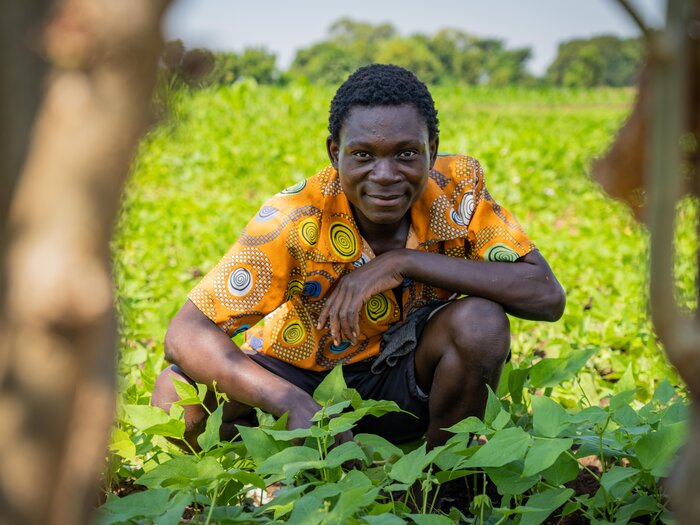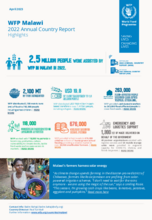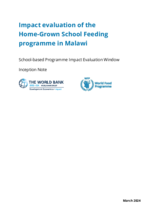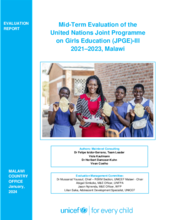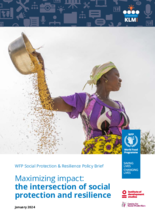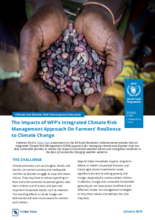Malawi
- 90%
- of agriculture is rain fed
- 5.4 million
- people are chronically food insecure
- 19 million-plus
- population
Malawi is a small, landlocked country in Southern Africa, ranking 169th out of 191 countries on the 2021 Human Development Index. With a majority of livelihoods dependent on agriculture, Malawians are highly vulnerable to the effects of climate-related shocks and stresses. Most rural families experience poverty, with those headed by women suffering the most. Climate-induced shocks, the lingering effects of COVID-19, the impact of the conflict in Ukraine, rapidly rising inflation and an overall difficult economic landscape will further threaten food and nutrition security for the foreseeable future. Food and fuel prices have been on the rise, reaching record highs for the post-harvest period and eroding the limited purchasing power of Malawi’s poor and ultra-poor households, who already survive on less than US$165 per person, per year.
Malawi’s challenges are also compounded by high HIV prevalence (at 8.9 percent), low primary school completion (51 percent) and stunting – a sign of chronic undernutrition (35 percent for children under 5).
WFP continues to strengthen its integrated approach, addressing issues related to food systems and increasing the focus on innovation, resilience programming and climate change adaptation. Our work improves livelihoods for smallholder farmers and other vulnerable populations, with an emphasis on women and youth.
WFP continues to partner with the Government, other UN agencies, NGOs, civil society and the private sector, to achieve the Sustainable Development Goals (SDGs) by 2030, with a particular emphasis on reaching Zero Hunger (SDG 2), and aligning with Government strategies, particularly its Vision 2063.
What the World Food Programme is doing in Malawi
-
Food assistance to refugees in Malawi
-
WFP in Malawi responds to emergency needs, prioritizing use of cash-based transfers for people affected by conflict. Around 50,000 refugees and asylum seekers are registered in the Dzaleka refugee camp in Malawi. Political instability and social unrest in the Great Lakes and Horn of Africa regions have resulted in a continued flow of refugees into Malawi for over two decades. WFP works to achieve and maintain food security among refugees. The majority of people in camps have no access to livelihood activities, and WFP assistance is the only reliable and predictable source of food for them. We provide cash-based transfers to meet immediate and urgent food needs, as well as supporting activities such as crop and livestock production to increase people’s incomes and self-reliance.
-
Restoring food security and livelihoods
-
WFP’s “changing lives” agenda in Malawi focuses on integrated resilience activities that cover asset creation, promotion of climate-smart agriculture, increased access to finance, crop insurance, management of post-harvest losses, and linking smallholder farmers to markets. The Malawi Country Office is continuing its shift towards resilience, focusing on addressing the structural causes of hunger and aligning that work with resilience interventions wherever possible. WFP is implementing an integrated package of risk-management strategies including crop insurance, climate services and village savings and loans, to mitigate against crop failure and support farming communities in moving from subsistence farming to having surplus crops they can sell.
-
School meals and nutrition
-
WFP supports education through the provision of daily meals to around 600,000 schoolchildren in over 450 primary schools. In 2022, we transitioned to a home-grown school feeding approach that uses fresh foods bought from local smallholder farmers. WFP is also sharing nutrition messaging with school feeding committees and volunteer parents, to promote healthy habits in the school and communities. WFP also focuses on institutional capacity strengthening, working with the Government of Malawi and other sectors to increase technical capacity of operations and systems in order to increase ownership and sustainability.
Malawi news releases
Go to pagePartners and Donors
View allFind out more about the state of food security in Malawi
Visit the food security analysis pageOperations in Malawi
Contacts
Office
United Nations World Food Programme Family Dental Clinic, Area 14 Compound City Centre, P O Box 30571
Lilongwe
Malawi

